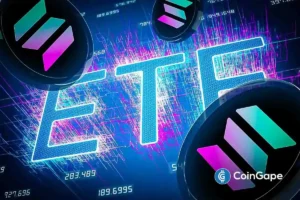Louisiana has recently passed House Bill 488, signed into law by Governor Jeff Landry, which supports the use of bitcoin while placing restrictions on government-controlled digital currencies. The bipartisan effort behind this legislation, led by Rep. Mark Wright and Sen. Jean-Paul Coussan, aims to promote financial freedom in the digital age. The law offers protections for bitcoin users and miners, allowing individuals to self-custody their digital assets and conduct transactions using bitcoin.
The new law in Louisiana is expected to have significant economic implications by promoting transactional freedom and supporting bitcoin mining activities in designated industrial areas. By attracting investment and fostering economic growth within the state, Louisiana hopes to position itself as a favorable location for bitcoin mining operations. Additionally, the law’s stance against accepting Central Bank Digital Currencies (CBDCs) reinforces privacy protections and resists government-controlled digital currencies.
Louisiana’s leadership in digital asset legislation, as demonstrated by House Bill 488, sets a precedent for other states to follow in embracing cryptocurrencies within their regulatory frameworks. The law not only protects digital asset rights but also encourages innovation and economic development in the cryptocurrency sector. By leading by example through the promotion of bitcoin adoption and the prohibition of CBDCs, Louisiana aims to create a supportive environment for digital currencies across the United States.
As other states observe Louisiana’s progressive approach, there is potential for a domino effect, leading to a more cohesive and favorable regulatory landscape for cryptocurrencies nationwide. Organizations like the Satoshi Action Fund play a crucial role in shaping legislative developments and advocating for the integration of digital currencies into mainstream economic practices. The enactment of House Bill 488 reflects a broader recognition of the transformative potential of digital assets like bitcoin.
In conclusion, Louisiana’s bold move in supporting bitcoin while setting boundaries for government-controlled digital currencies through House Bill 488 marks a significant step towards financial freedom in the digital age. The legislation provides comprehensive protections for bitcoin users and miners, promotes economic growth through bitcoin mining activities, and establishes the state as a trailblazer in digital asset legislation. By encouraging innovation and fostering a supportive environment for digital currencies, Louisiana’s leadership in this space may pave the way for other states to follow suit.

















